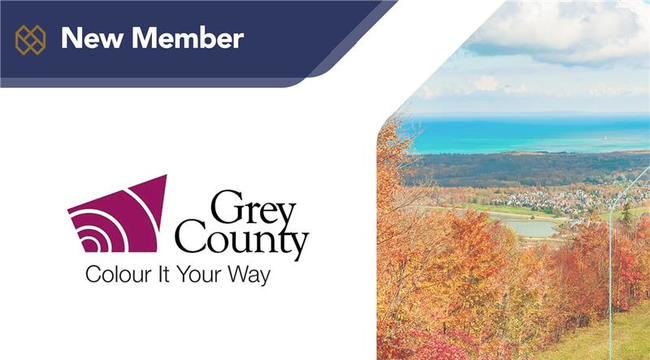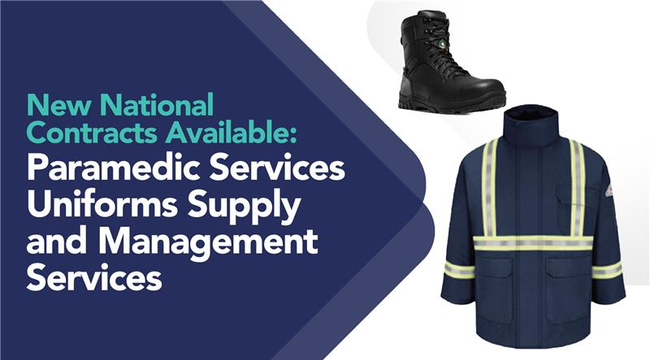HealthPRO Canada News
February 02, 2023
HealthPRO Board Member Bernard Leduc discusses exemplary career experience as family physician and President and CEO after decades of success

Dr. Bernard Leduc took a bit of a gamble in 1999 when he relocated his family medicine practice from his home province of Quebec to Ottawa and began working at Hôpital Montfort. The Francophone academic hospital was facing the threat of closure at the time. But Dr. Leduc was determined to join the fight to save it and was confident the hospital’s unique Francophone mandate would help it prevail. More than two decades later, Montfort isn’t just surviving – it’s thriving. Under Dr. Leduc’s leadership as its President and CEO since 2010, Montfort has a long track record of excellence in patient care and quality improvement. He has built on his experience as a family physician and hospital administrator in his role as a member of HealthPRO’s Board of Directors for the past five years.
You’ve been a part of Hôpital Montfort for many years, serving as Chief of Staff prior to becoming President and CEO in 2010. What was it that drew you to Montfort and has kept you committed to the mission of the hospital?
I was born and raised in Quebec and got my medical degree at the University of Montreal. I worked as a family physician in Quebec for 16 years before relocating my practice to Ottawa in 1999. I was interested in hospital work, but often in more urban settings there’s less room for family physicians to work within a hospital. I saw that that wasn’t the case at Montfort and I was attracted by its unique Francophone mandate. The fact that I could continue working in a hospital and the fact that I was joining a French hospital and delivering care in both official languages was attractive for me.
Before becoming a CEO, you were a family physician. How has being a physician influenced your leadership style?
As a physician you learn to listen to others. Although some people think that being a physician is a solo undertaking you also have to work together and collaborate to get the best results. I think I applied that in my practice. It is never about me. It’s about the patient. As a leader of the hospital it’s not about me, it’s about making sure that we are doing the right thing. You also have to create a sense of purpose and an environment where people know what you’re focusing on as an organization.
I never actively sought leadership positions throughout my career, but I’ve often ended up in them. I guess I’m soft and I can’t say no.
Like most hospitals, Montfort has experienced waves of COVID patients. Throughout the pandemic you and your leadership team have stayed visible to staff and are always asking, “Do you have what you need?” How has that level of attentiveness helped keep staff morale up during this critical time?
It’s been a very difficult two years. Our situation has been made more difficult because we have to recruit bilingual staff. Every organization right now is struggling with a shortage of health care staff, but they can hire from a bigger pool than I can. So it’s been really challenging.
Right from the beginning we’ve focused on communication with staff. We set up an online portal where we provided the latest information to all staff. Then we started making videos and having town halls to have frank conversations about what’s happening in the hospital and in our community. Communication during the crisis has been key.
Morale has gone up and down over the past two years. You go through phases along with the different waves. Communication has helped, but the current staffing challenges are putting a lot of pressure on everyone.
You’ve been vocal about the importance of open communication and partnership with the Montfort board. How do you adapt that philosophy when you change hats and sit as a board member?
I’ve always seen the relationship between management and board members as being a critical one. The board has to challenge the CEO and management to ensure we’re delivering and taking the strategies where they should go, but it’s not an us-and-them situation. We’re in this together.
As the CEO, I’ve always been very transparent with our board and I expect the same on boards that I sit on. You don’t want your board chair or board members being asked a question to which they don’t know the answer. You want them to be apprised of the issues because they are in the community and need to have an understanding of the challenges you face.
Last year, your hospital signed a memorandum of understanding with the Wabano Centre for Aboriginal Health to work together to find the gaps in service affecting the Indigenous population and to take steps to improve it. Do you have any advice for other hospitals seeking to improve how they serve indigenous communities?
With the Indigenous communities, it’s all about building relationships. It cannot be transactional. Wabano is the largest center for indigenous health in Ottawa and they’re our neighbours. Shortly after I became CEO at Montfort we provided Wabano space in our new building to use temporarily for their newborn and maternal health clinic while they were going through renovations of their own. That’s how we started our relationship.
As our relations progressed and as we did some digging into how we were providing services to the Indigenous community, we found that some of our practices were discriminatory. We had a frank discussion with Wabano and learned we could do things differently to provide better care.
We acknowledged that and started working with them to find a solution. Working with Indigenous communities is all about building relationships. You have to move with them and you have to listen. You have to be open-minded and then you have to work together to see what works for them in order for you to provide better and culturally appropriate services.
What makes the mission of HealthPRO meaningful to you?
The crisis with PPE at the beginning of the pandemic reinforced the need to have a good procurement system in Canada. Governments federally and provincially have spent a lot of money to tackle the virus over the past two years and it’s obvious at some point we’re going to have to pay that debt back. For us, making sure we have the proper materials at the proper time at the proper price is important. I think HealthPRO is doing a very good job of maximizing the buying capacity of health care organizations across Canada to meet that goal.
You’ve had a long and impressive career, Bernard. What are you still looking forward to accomplishing?
Right now my focus is on tackling post-pandemic challenges like health human resources and the backlog of surgery.
I’m also very focused on getting the Aline-Chrétien Health Hub - Orléans fully operational. The hub is a really innovative partnership with several other partners from hospital, community and social services, that brings a wide range of health services together under one roof. The project began just before the pandemic so it’s had a couple of delays along the way.
My belief is that the hospital of the future will be much smaller and everything will be happening much closer to home. The technology is there so that we don’t have to continue to build big mega-hospitals, but invest more in care in the community. If I can push that forward before I leave, that’s what drives me now.
Also, I just became Grandfather for the first time so I plan to enjoy time with my granddaughter.
You mentioned in a previous interview that you had discovered the joy of cooking – particularly, sous-vide cooking. Is that still a passion – and do you have any new ones?
It’s still a passion, and since I like cooking, I also like wine – and those two things go well together.


